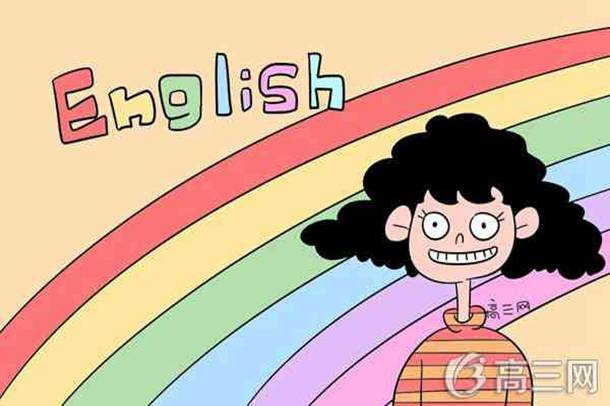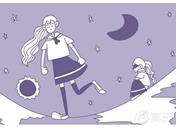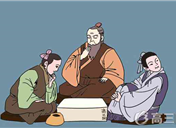英语情态动词的常用用法归纳
2021-10-03 09:03:05文/宋则贤在英语的动词当中,凡是用来刻画人的情感动作的动词,我们称之为情态动词,情态动词有着具体的汉语意思。但却不能独立作谓语和后面的行为动词一起构成和成谓语。

概念
在英语的动词当中,凡是用来刻画人的情感动作的动词,我们称之为情态动词,情态动词有着具体的汉语意思。但却不能独立作谓语和后面的行为动词一起构成和成谓语。区别于其他的行为动词,情态动词没有人称和数的变化,有少数的时态现象—— 一般时、过去时、将来时等。
应用
一.Can
1、can表示说话人的能力,常译作能、能够、会。
eg:I can speak English very well.
Can you swim across the river? Yes, I can/ No, I can’t.
2、 can可以用来表示说话人的客观可能性,通常应用于否定疑问句式中。
eg:People can’t live without water.
Can you finish the jobs in three hours?
Can this be true.
3、 在口语里,can表示允诺、允许、可以。等于may,但是may的语气重于can。
eg:Can I come in? = May I come in?
Can I use your bike? = May I use your bike ?
*表示允许可以may mightcould can
4、 在“过去时”的语境里,通常用could 表示它的过去式,用be able to 短语(was/were)
而could通常用来在一般现在时的语境里表示委婉语气
eg:Could(can)you show me the way to the supermarket?
5、 can表示猜测
(1)对现在状态的一种猜测,只能用在否定疑问句中。
eg:Zhang can’t be ill really?
This can’t be done by him.
(2)对现在动作的猜测
eg: The boy can’t be telling lies.
Mary works so hard, now, she can’t be sleeping.
(3)对过去动作的一种猜测
eg:He can’t have gone to the bookshop yesterday.
Mother couldn’t have said it.
6、 can(could)惯用法
(1)can’t wait to do 迫不及待做…….
eg: Children can’t wait to eat apples in the basket.
(2)can’t help doing 情不自禁做某事。
eg:When I heard the news I can’t help laughing.
(3)can’t but do 不得不
eg:I can’t but refuse you.
We can’t but ask him about it.
*can’t but do 区别于 have to
have to 表示说话人在客观条件下的无奈所为,表示说话人的一种无奈情绪。
can’t but do强烈突出说话人内心的反抗反对情绪。
二.May
1、 may表示可能性,也许、可能,通常应用于正式文体
eg:China may make friends with many people all the world.
Boss said that you might drive this new car.
You may not take this book out of the reading room.
2、 may表示允许、允诺,口语中等于can, may比can语气强。
eg:May I speak here?
May I go in to the room to see her? Yes, you may. No, you mustn’t.
*may 表示允诺、允许,其问句回答的排序
eg:May I use your pen?
Yes, you sure please. ok…..
No, you mustn’tyou had better notplease don’tyou can’tI don’t
think you canyou may not
3、 might在表示上述概念时,语气更委婉
eg:She was afraid that they might not her idea.
He asked if he might look through your album.
4、 may 表示推测,通常用于肯定句中
(1)对现在状态的一种推测。
eg:He may be very busy now.
(2) 对现在动作的一种推测。
eg:Where is Tom? He may(might) be having breakfast at this moment.
(3) 对过去动作的一种推测。
eg:Where were you last night?
I might have watched TV or have read the novel at home.
5、 may的固定用法
(1) may在祈使句中至于句首表示祝愿。
eg:May you succeed!
May god be with you.
May you live to be one hundred.
(2) may在状语从句当中构成特殊的状语结构。
eg:They wanted to go to the Chinese restaurant they might eat the soup.
(3)may/might as well + 动词原形表示 还是….
eg:You may as well post him the letter again.
It was snowing I might as well stay at home.
三.must / have to
1、must表示 必须、一定、一定要,是所有情态动词当中语气最强的,突出表现说话人的一种指责,即说话人主观上应该………
eg:Everybody must obey the rules.
People must do everything step by step.
Must we hand in our working plan this week?
Yes, you must. No, you needn’t /you don’t have to.
have to 必须、不得不、表示说话人客观条件下必须要做的事情,烘托说话人的无奈情绪。
eg:I had to answer the same question three times in class.
I hope you will have to finish your schooling this year.
2、must表示推测,但通常应用于肯定句式。
(1)对现在动作的一种推测 must be doing
eg:You haven’t warm clothes, you must be feeling cold.
(2)对现在状态的一种推测。
eg:ZhangHua must be in his room, because he telephoned me five minutes ago.
(3)对过去动作的一种推测 must have done
eg:The road is white, it must have rained last night.
You must have caught the first train, if you have got up early.
四.need
1、need是特殊的行为动词,具有双重性,即情态动词和行为动词两种形式,通常肯定句式用行为动词形式need to do,否定和疑问用情态动词形式。
eg:You need to go there by yourself.
He needs to read it for many times.
We needn’t worry about him.
Heed I finish my job today?
Need I come here tomorrow? Yes, you need / Yes, you need / Yes you should
Yes, you may.Yes, you must.
正确排序:Yes, you must / Yes, you have to / Yes, you ought to / Yes, you should / Yes,
you need.
2、need的特殊用法,可以表示责备。
need have done 需要做而没有做的事。
needn’t have done 没有必要做反而做了的事。
eg:You need have done it three days before.
The train is close to us, you needn’t have hurried their early.
3、need的固定用法
need doing = need to be done 表示被动意义
eg:This young tree needs watering.
五.dare
1、dare与need一样,具有行为动词,情态动词双重性,肯定句为行为动词,否定疑问句为情态动词。
eg:Mary dares to go there alone.
Dare you go through the forest at night? Yes, I dare.
She dare not stay at home alone.
No one dared speak of it again.
2、dare的惯用法
I dare say 我敢说。
eg:If your father dies, who will get the money? I dare say my uncle will.
六.ought to / should
1、ought to指说话人在道义和义务上应尽的责任和义务,使用ought to具有一定针对性,通常是按理推断。
should表示应该,只是强调单从人说话的角度上看指 劝告、建议,语气比ought to 弱。
eg:You are her mother; you ought to look after her well.
The youth ought to defend our mother land.
You ought to take your parents’ suggestion (advice).
Ought I to obey the rule in your class?
Yes, you ought to / No, you oughtn’t
Oughtn’t we to do everything possible to stop pollution?
We should study foreign language very hard.
One should be selfish.
We should encourage the newer, for we are his classmates.
2、should在虚拟语气当中可以构成特殊的谓语结构
eg:I suggested that he (should) be sent to the hospital at once.
should 在虚拟语气中放在疑问,否定句中表示惊讶
eg:I shouldn’t worry if I were you.
Why should she do that?
3、 ought to, should 表示责备
Ought to (should) + be doing
Oughtn’t to (should) + be doing 指说话人对现在动作的一种责备。
Ought to (should) + have done 表示说话人对过去动作的一种责备。
eg:You should be washing your clothes, why are you playing here?
Children shouldn’t be watching this film, they should be at school.
You should have gone over your lessons.
You oughtn’t to have watch TY so late.
I’m feeling sick. I oughtn’t to have eaten so much ice-cream.
七.will / shall
1、will 从情态动词的角度上看,充分地体现了will 的原始汉意 意愿、愿意 表示这一层意思will可用于多种人称。
eg:I will do everything for you.
Who will go with me?
2、will在疑问句当中通常在和第二人称搭配,表示征询对方意见,表示….好吗?
eg:Will you help me carry this box?
Will you open the door for me, please?
Won’t you come over?
3、表示某种习惯或某些倾向的动作,通常是it主语
eg:Fish will die without water.
What’s the matter with the door? It won’t lock.
Which do you want, this or that? Either will do.
4、 shall 在应用时比较强调人称的搭配,即不同的人称代表不同的语境,shall应用于第一人称时
表示说话人征询对方意见。
eg:What shall we do next?
shall应用于第一,第三人称时,除了表示征询对方意见以外,还表示向对方委婉的请求。
eg:Shall I open the door?
Shall we sit here?
Shall the boy wait outside? = Do you want the boy to wait outside?
shall应用在第二,第三人称时,表示说话人给予对方警告和命令,允许或威胁。
eg:You shall fail if you don’t work harder. (警告)
He shall have the book till he finished reading it.
You shall do as t say.允许
八.used to / would
1、would 表示意愿,愿意即 will 的过去式,语气更加委婉些,通常是will发生在从句里。
eg:He said that he would try his best to help us.
Don’t worry, I promised that I would do.
would 在表达will 的意愿,愿意的语气时,通常会形成特殊的句型,句式。
eg:Would you please have lunch with us?
Would you pass me the book on the desk?
Would you like me to carry it for you?
That would be kind of you.
2、would表示过去常常,即主语常有的一种习惯,但只局限于过去某一阶段的动作。
eg:I would drink green tea.
When he was young, he would smoke a lot.
I have still remember the boy, He used to ask some stupid questions.
3、 would 可以用在特殊的语境里,表示说话人的情感或情绪上的宣泄,常用于否定句,肯定句,不用再疑问句里。
eg:I don’t really understand you, why?
----No, you wouldn’t. (不指望你明白)
4、 would的惯用法
would可以用在虚拟语气中
eg:I wish the rain would stop for a moment.
Would rather do than do?
would mind doing 做……你介意吗?
eg:Would you mind opening the window?
5、 used to过去常常
(1) 和would比较起来,used to 强调过去常常发生的某事而现在不是。used to没有其他的词形变化,不能与其他的情态动词连用,表示从前经常发生的动作现在却不复存在了。
eg:My uncle used to take cold bath in winter.
Jams used to have fat meat.
(2) used to 有时根据上下文可判定used to后面的成分,所以情态动词used to后面的行为动词可省略。
eg:I can’t stand as much as I used to.
(3)used to 的否定形式
在used to前面用didn’t表示
I didn’t use to smoke.
在used to前面加never
When I was as young as you, students never used to say anything against their teachers.
在used to 后面加not
The woman in our office used not to clean the room.
(4) used to 在反意疑问句中的表示
eg:John used to be a policeman, didn’t he? / used not he?
--------Yes, he did.No, he didn’t.
--------Yes, he used to.No, he usedn’t to
九.had better
最好---;应该-----(=should 约等于 ought to)
1、与第一人称I ,we 连用时,表示说话人的某种意向。
eg:I think we had better wear warm clothes in this season.
We had better wait for her for a moment.
2、与第二人称连用时,表示说话人的忠告,劝告。
eg:You had better go immediately lest you miss the good chance.
You had better read the test again and again.
 单招跟高考有什么区别 哪个好
单招跟高考有什么区别 哪个好有很多的高三考生在现阶段是非常的迷茫的,不知道应该...
2021-10-03 中国意境最美的33句诗词
中国意境最美的33句诗词忧悒清远的气韵,是悠远的不可触及的忧伤,如微云孤月...
2021-10-03 情商怎么提高 训练情商的5大方法
情商怎么提高 训练情商的5大方法一个人即使是工作能力再强,人再好,表达不出来也会让...
2021-10-03 高考分数比投档线高多少才安全
高考分数比投档线高多少才安全其实很难说高考分数比投档线高多少算安全。有的压线也...
2021-10-03 英语听力水平的提升方法有哪些
英语听力水平的提升方法有哪些英语听力练了很久还是没起色?如果你的英语听力很差,...
2021-10-03 高一数学知识点 如何学好高中数学
高一数学知识点 如何学好高中数学有很多的同学是非常的想知道,高一数学知识点有哪些,...
2021-10-03 关于珍惜时间的名言名句有哪些
关于珍惜时间的名言名句有哪些时间就是金钱,尤其是现在的社会,生活节奏快,时间非...
2021-10-03 高中数学辅导书哪本好 高考数学最好的辅导书
高中数学辅导书哪本好 高考数学最好的辅导书高中数学辅导书哪本好,高考数学最好的辅导书是什么?...
2021-10-03 高三政治选择题答题技巧 政治选择题解题方法
高三政治选择题答题技巧 政治选择题解题方法在高三政治复习的时候,不仅需要扎实的掌握各科知识点...
2021-10-03 大连医科大学迎新网入口 入学流程及注意事项
大连医科大学迎新网入口 入学流程及注意事项转眼间暑假已经过去大半,大部分的同学们也已经收到了...
2021-10-03 高二可以出国留学吗 出国留学要做什么
高二可以出国留学吗 出国留学要做什么现在有很多高二的考生由于学成绩不太好,他们可能会选...
2021-10-03 高三不读了能单招吗 单招报名条件是什么
高三不读了能单招吗 单招报名条件是什么高三不读了能单招吗,单招报名条件是什么,高三被劝退...
2021-10-03 今年高考是哪天开始 一共考几天
今年高考是哪天开始 一共考几天考生和家长最关心的就是高考时间,其实最近这些年高考...
2021-10-03 民办高中能考大学吗 民办高中有没有学籍
民办高中能考大学吗 民办高中有没有学籍很多家长和学生担心民办的高中不能考大学,真的是这样...
2021-10-02 高职单招好不好 高职单招难考吗
高职单招好不好 高职单招难考吗高职单招当中,有的专业含金量高,被录取后与通过高考...
2021-10-02
点击查看 高中英语 更多内容




